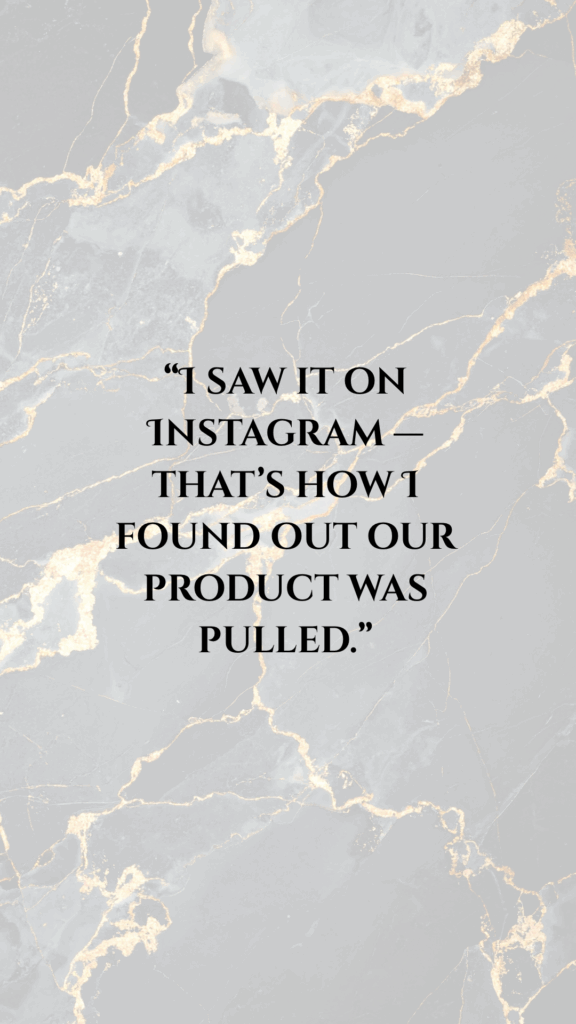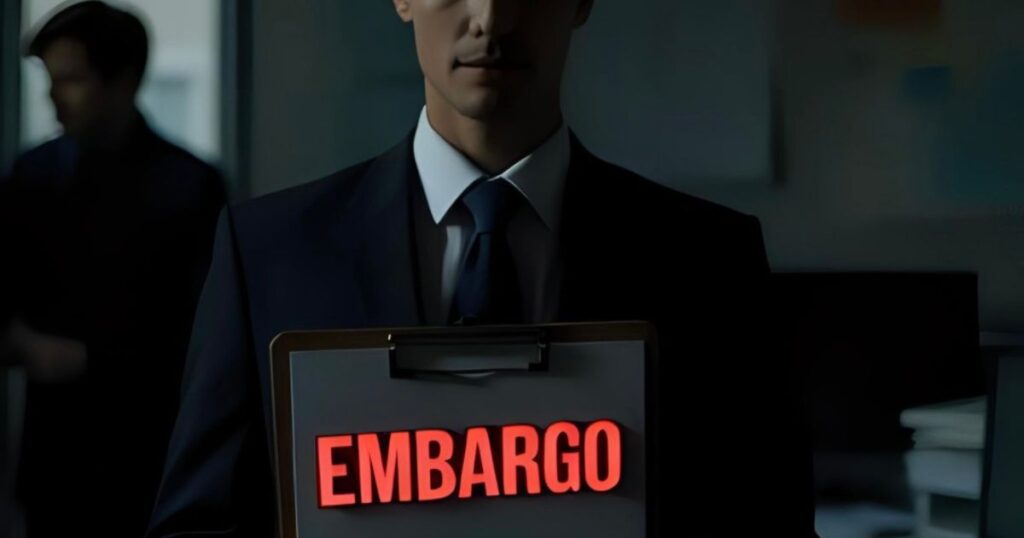Reporting based on a direct interview with Hollow Tips cofounder Klaudia.
An inside look at a system where compliant brands learn about enforcement at the same time as the public — and often lose everything before anyone explains why.
On October 16, 2024, California’s Department of Cannabis Control (DCC) revoked K.U.S.H. Collective’s licenses and issued an embargo on all products produced under that license. A consumer advisory went public. Within hours, inventory tied to that manufacturing pathway began disappearing from shelves statewide.
Hollow Tips was one of those brands. There was no notice.
“I saw it on Instagram,” cofounder Klaudia said. “I was in a meeting when my phone started blowing up — storefronts, brands, deliveries. I had no idea what was going on.”

A Brand Built on Engineering
Before the embargo hit, Hollow Tips had carved out a distinctive lane in the vape market.
Known for its patented bullet-shaped cartridges, water-clear Δ9 distillate process, leak-proof hardware, and a patent-pending air-bubble chamber engineered to expand smoke during use, the brand’s 510 carts were recognized for their precision and design. Collectible magnetic caps added a signature touch that helped the product stand out on shelves.
That context mattered — because what followed wasn’t just the loss of inventory. It was the loss of momentum built on years of innovation.
Impact Zone
The first blow was immediate: Hollow Tips’ vape-cart SKUs were pulled from dispensary shelves the same day the advisory appeared.
The second was far more damaging.
DCC agents raided the K.U.S.H. Collective facility and seized all product present — including Hollow Tips hardware that hadn’t entered production yet. The company still owed its overseas manufacturer. Retail buyers had already paid COD.
“Almost 20,000 units seized,” Klaudia said. “China still needs to get paid. Buyers had already paid COD.”
Everything upstream and downstream collapsed at once.
Collateral Built Into the System
California’s cannabis economy depends on shared license touchpoints — manufacturing, co-packing, distribution — all stacked for compliance but unified by risk. When one license is embargoed, every brand connected to it is pulled into the blast radius.
“As a business owner you expect due process,” Klaudia said. “You expect an email. Instead, we found out with everyone else.”
In most regulated industries — food, pharma, cosmetics — operators receive tiered notifications, corrective timelines, and remediation pathways.
In cannabis, enforcement bypasses all of that. A license is embargoed, product is seized, and there is no window to fix anything.
A compliant brand can be wiped out in a day because of a partner’s mistake it had no visibility into.
Inside the Fallout
With only a public advisory to guide them, Hollow Tips had to make decisions in real time. The priority wasn’t messaging — it was survival math: what could be salvaged, what had to be written off, and what capital still needed to clear for hardware already in motion.
“I was stuck in a corner and I had no option,” Klaudia said. “We had to regroup, restrategize, re-evaluate our options.”
Spending contracted to the most essential obligations. Every choice was about keeping the brand alive long enough to rebuild.
“We had to make sacrifices to make this happen,” she said.
“I sold my Rolex.”
A practical decision, not an emotional one — liquidity, not luxury.

One Year Later
A year later, the aftershocks remain.
Hollow Tips is back on shelves, but the company didn’t return to business as usual. Production is slower by design. No rushed SKUs, no assumptions, and collective approval on high-impact decisions. Batch consistency and quality control are treated as existential, not optional.
“When we came back, we had to make sure we didn’t cut any corners,” Klaudia said.
“Being cheap is expensive.”
One mistake — even one — could put the company under.
What the System Teaches
The embargo made a systemic flaw impossible to ignore:
compliance isn’t enough.
Brands operating in good faith still depend on partners whose licenses they don’t control — and no operator has full visibility into every compliance step performed by those partners. There is no mediator when something goes wrong. No inquiry process. No chance to remedy.
For the public, the DCC advisory looks like a safety notice.
For brands, it’s often the first — and only — signal that their entire business is in jeopardy.
Hollow Tips didn’t fold. Most would have.
They absorbed the hit, rebuilt, and spent the next year paying for a problem they didn’t create.
What Remains
The DCC’s mandate is consumer protection.
But for operators, the reality is collateral risk — and no structural safety net.
Hollow Tips is proof that a compliant brand can be pulled into the fallout and forced to defend its integrity with no warning and no path to reverse the damage.
When asked what she’d tell another operator navigating the same situation, Klaudia didn’t hesitate:
“Choose your partners wisely — and make sure they’re doing the work you are.”

Source: California DCC Consumer Advisory, October 2024
Klaudia Co Founder of Hollow Tips

Victoria Burkard is a cannabis strategist and content consultant who helps brands grow authentically while navigating the ever-changing landscape of shadowbans and platform restrictions. She writes from the intersection of creativity and compliance—because in this industry, you need both.
- California DCC Issues Embargo, Recall Of Cannabis Products From Three Companies
- DCC Continues to Move the Ball on Cali Operators
- California Latest To Ramp Up Enforcement Against Marijuana Testing Labs
- Broken Trust in Cannabis Compliance, The Fallout of the METRC Whistleblower Lawsuit
- Former Employee Files Lawsuit Against DCC, Alleging Termination for Reporting Lab Fraud Concerns

















